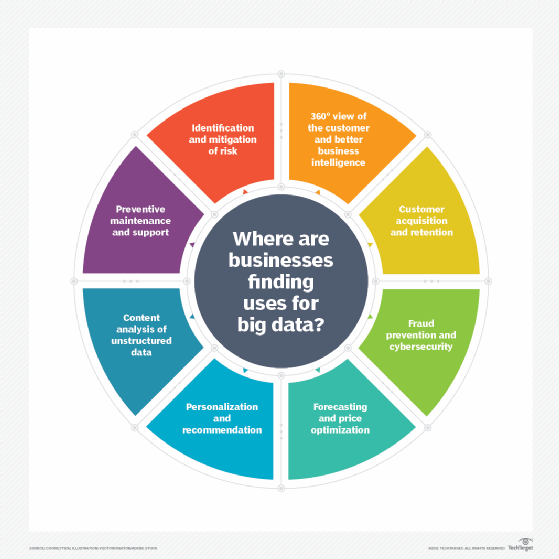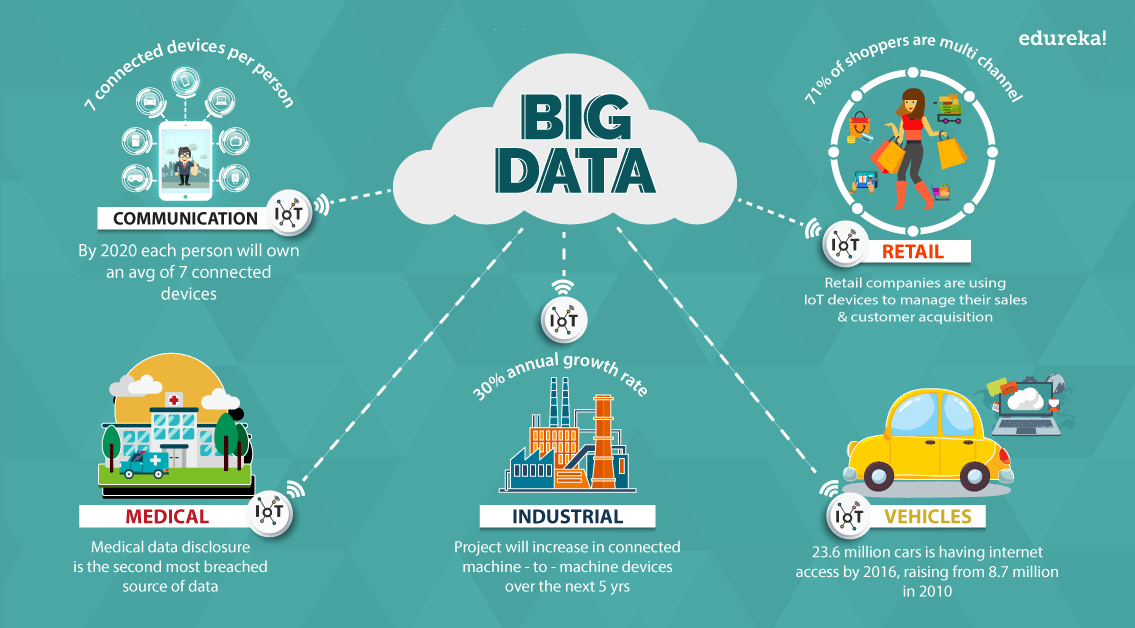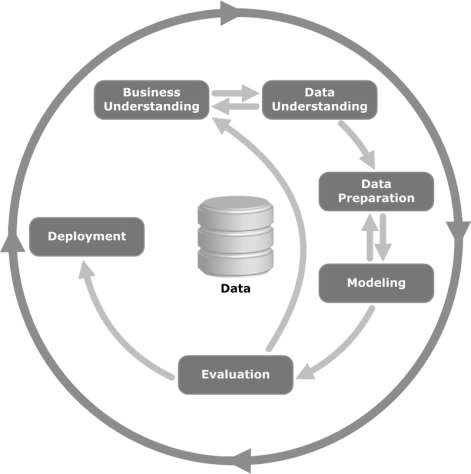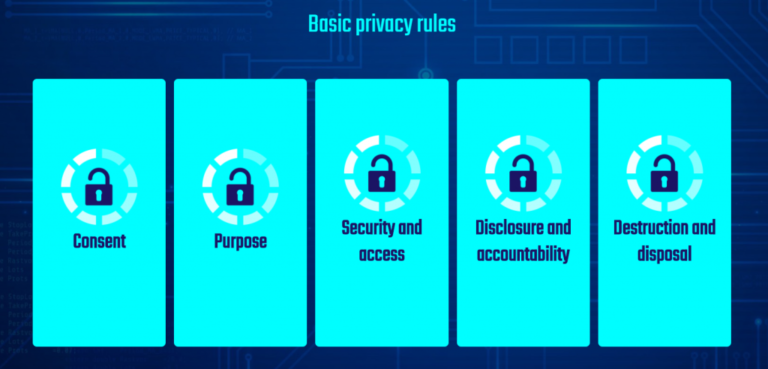Where Is Big Data Used?
Big Data is an umbrella term that is used to describe a large set of data that is too complex and too large to be processed by traditional means. It is often used to gain insights into customer behavior, identify trends, or uncover hidden patterns. Big Data is being used in a variety of industries, from healthcare to finance to retail. Companies are using Big Data to optimize processes, create new products and services, and better understand their customers. With the help of Big Data, organizations can make better decisions and improve their operations.
Businesses and Big Data
Businesses and Big Data have become indispensable partners in today’s ever-evolving digital landscape. Big Data is a term used to describe the massive volume of structured and unstructured data that can be used to gain insights and make informed decisions. Big Data is helping businesses of all sizes and industries make better decisions, gain a competitive edge, and transform their operations. From leveraging customer data to predicting customer behavior, businesses are using Big Data to gain a better understanding of their customers and better meet their needs. Big Data is also being used to improve operational efficiency, spot trends, and optimize pricing. With Big Data, businesses can gain an edge over their competitors and better serve their customers.
Government and Big Data
Big data and government go hand in hand. Governments use big data to make decisions about public policy, taxation, and the environment, as well as to monitor citizen behavior. With the rise of digital technologies, big data has become an invaluable tool for governments to analyze large amounts of data quickly and efficiently, without relying on manual labor. Big data has enabled governments to gain better insights and make better decisions, leading to more efficient and effective public services. Governments are also using big data to detect and prevent fraud and other illegal activities. With big data, governments can quickly identify and target suspicious activity, and take appropriate action to protect citizens and the government itself. Ultimately, big data is helping governments to become more transparent, efficient, and effective.
Healthcare and Big Data
The healthcare industry is increasingly embracing the power of Big Data. By collecting and analyzing health data, healthcare providers can gain insights into patient care and disease management, uncover trends in population health, and make decisions based on data-driven evidence. Big Data can enable personalized medicine, provide predictive analytics for healthcare providers to identify high-risk patients, and empower researchers to develop more effective treatments. Big Data can also help reduce healthcare costs, improve quality of care, and aid the development of new drugs and medical devices. With Big Data, healthcare providers can gain new insights to improve the quality of care and help patients lead healthier lives.

Education and Big Data
Big Data has become an integral part of modern education. It allows educators to gain invaluable insights into student performance and education trends with ease. By leveraging Big Data, educators can create customized learning experiences that are tailored to the individual student, resulting in more informed decisions and improved outcomes. With the help of Big Data, educators also have access to a wealth of data that can be used to identify potential areas of improvement, such as curriculum design, course delivery, and student engagement. Big Data can also be used to track student progress and identify areas of weakness. This data can then be used to create targeted interventions to help students succeed. The potential of Big Data to revolutionize education is only just beginning to be realized, and its impact on the future of learning is sure to be profound.
Retail and Big Data
Retail and Big Data are two powerful forces that have the potential to revolutionize the world of retail. Through the use of big data, retailers are able to gain insight into consumer behavior and preferences, allowing for an unprecedented level of personalization. By leveraging big data, retailers can improve customer satisfaction, increase sales, and optimize pricing strategies. Big data can also be used to help retailers make smarter decisions about product placement, marketing strategies, and inventory management. In addition, big data can be used to gain insights into customer preferences and trends, allowing retailers to tailor their offerings and marketing campaigns to better meet the needs of their customers. In short, big data has the power to revolutionize the retail industry, driving better customer experiences, improved sales, and greater profits.
Media and Big Data
Media and Big Data are the combination of two powerful forces. Media is the way we communicate, share, and learn information, while Big Data is the massive amount of information that is collected, analyzed, and stored. Combining these two disciplines, allows businesses to better understand their customers and create more targeted and effective marketing campaigns. Big Data also enables companies to analyze customer behavior and anticipate their needs. This helps them to create better products and services that meet customer expectations. By leveraging the power of Media and Big Data, businesses can gain a competitive edge and create successful strategies.
FAQs About the Where Is Big Data Used?
Q1. What types of businesses use Big Data?
A1. Big Data is used by a wide variety of businesses, from healthcare to retail to finance. Businesses use Big Data to improve customer service, increase efficiency, and gain insights into their customers and operations.
Q2. What are the benefits of using Big Data?
A2. Big Data can provide businesses with a wealth of insights into their operations and customers. It can help businesses identify new opportunities, improve customer service, and increase efficiency.
Q3. How is Big Data collected?
A3. Big Data is typically collected from a variety of sources, including customer surveys, website analytics, and social media data. Businesses can also use sensors and other technology to collect data.
Conclusion
Big data is used in a variety of industries, from healthcare to retail and finance. Companies use big data to improve operations, gain insights, and increase their competitive advantage. It is also used in research, marketing, and customer service. Big data is an invaluable tool for businesses looking to gain an edge in today’s highly competitive landscape. As technology continues to evolve and businesses become more data-driven, the use of big data is only going to increase.






